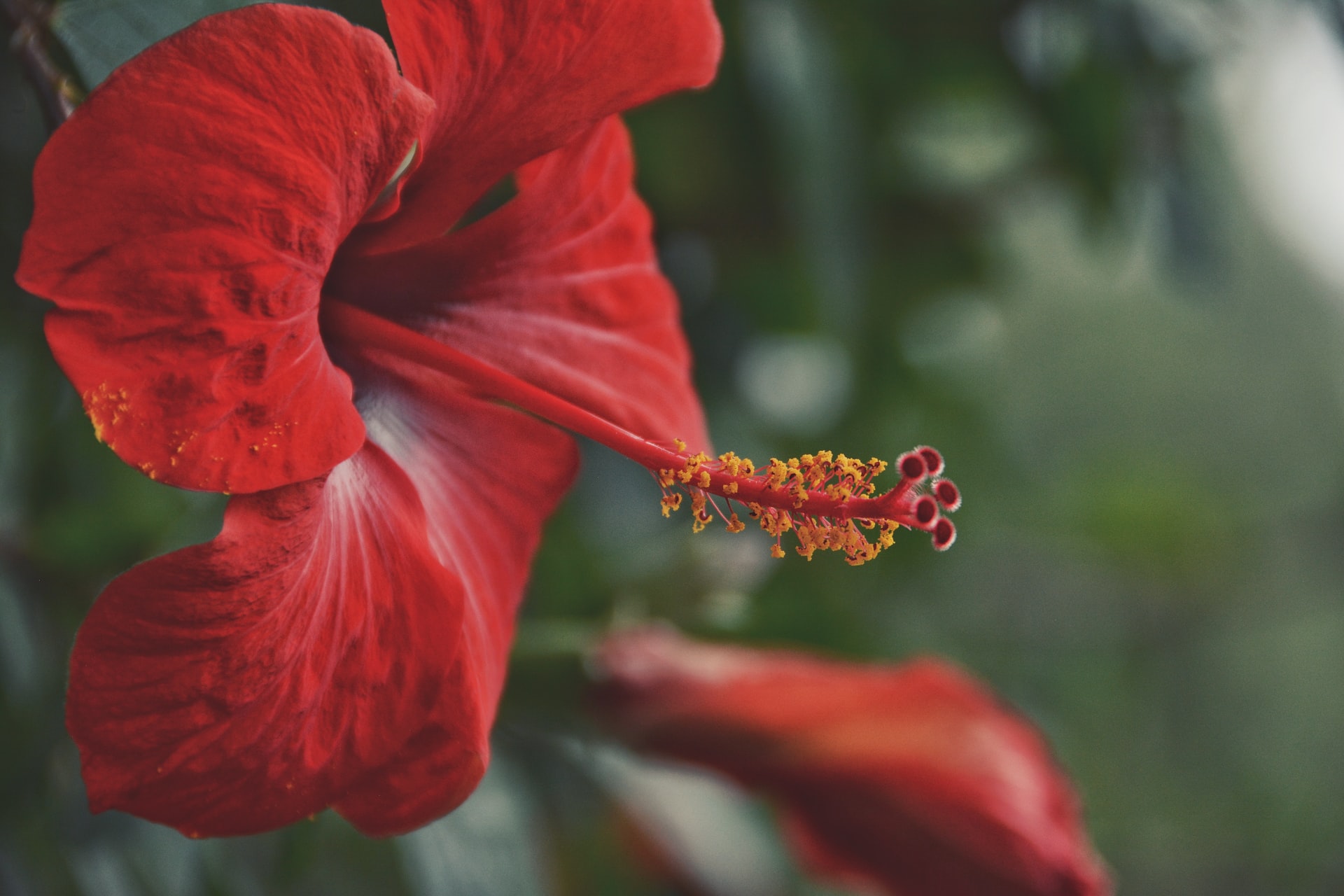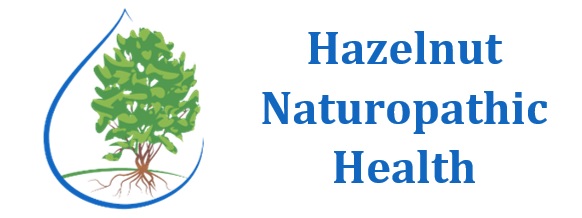
Hibiscus sabdariffa: An Herbal Heart Tonic
Hibiscus sabdariffa
Disclaimer: This page contains some affiliate links. I may earn a small commission when you click any link here to which goes back into Hazelnut Naturopathic Health. You are not charged any extra money if you decide to make a purchase, and you help fund a local business focused on improving the health and well-being of the communities of West Michigan. These are products which I recommend to clients who ask, and all of the affiliate links here belong to companies/products which I have tried and personally love.
Hibiscus (Hibiscus sabdariffa) is a relatively easy-to-grow plant used around the world as food and a fiber crop. The fiber is comparable to jute, and it is used make clothing, rope, and even paper. The seeds can be roasted or ground for food, the leaves can be cooked or eaten raw like a vegetable, and the calyces can be used in drinks or flavoring for different foods like ice cream or cakes. Well-known in the United States in its tea form, it is a beverage of choice for people around the world. It has many different names such as Jamaica in Mexico or Karkade in Egypt. Traditionally hibiscus is used to help lower blood pressure, treat sore throats, liver disease, and even as an aid for increasing lactation. Most importantly, it is very safe with a tart but fruity taste which most people tolerate well. [1]
What Does Hibiscus Do?
Studies have demonstrated it has a lowering effect on blood pressure and can help improve cholesterol levels. Regarding high blood pressure, one study looked at how effective it was on lowering blood pressure in patients with stage 1 hypertension. They concluded it lowers systolic and diastolic blood pressure though a larger study with more subjects is needed. Overall, hibiscus seems to work by increasing kidney filtration, creating a mild diuretic effect. Regarding cholesterol, studies show it has some effect at reducing total cholesterol, LDL, and triglycerides. Similarly, it may also increase HDL cholesterol. Anthocyanins, flavonoids found in brightly colored fruits (blueberries, raspberries, strawberries, etc), are part of how hibiscus does this; as a potent antioxidant, it can help stop damage from occurring to blood vessel walls. These plant substances protect the blood vessels by lowering cholesterol and protecting against free radicals. [1] [2] [3]
Who Can It Help The Most?
To conclude, hibiscus is most helpful for people with type II diabetes, cardiovascular disease, and high blood pressure. Cardiovascular disease is the leading cause of death in the United States, and having a more natural option to consider may be useful for a lot of people. As always before changing any routine, consult your primary care doctor or another qualified health professional. Taking medications and natural substances together can be dangerous if not properly managed. Keep your local naturopathic doctor in mind; they are uniquely qualified to determine if hibiscus is right for you! Follow the links to learn more about Dr. Blandford or naturopathic medicine.
Here is a Karkade Recipe for a bonus cultural experience! If you are looking for a good, quality source for hibiscus or other bulk herbs, check out Starwest Botanicals, a great source for organic herbs and spices.
References:
1] Da-Costa-Rocha, I., Bonnlaender, B., Sievers, H., Pischel, I., & Heinrich, M. (2014). Hibiscus sabdariffa L. - a phytochemical and pharmacological review. Food chemistry, 165, 424–443. https://doi.org/10.1016/j.foodchem.2014.05.002
[2] Hopkins, A. L., Lamm, M. G., Funk, J. L., & Ritenbaugh, C. (2013). Hibiscus sabdariffa L. in the treatment of hypertension and hyperlipidemia: a comprehensive review of animal and human studies. Fitoterapia, 85, 84–94. https://doi.org/10.1016/j.fitote.2013.01.003
[3] Jalalyazdi, M., Ramezani, J., Izadi-Moud, A., Madani-Sani, F., Shahlaei, S., & Ghiasi, S. S. (2019). Effect of hibiscus sabdariffa on blood pressure in patients with stage 1 hypertension. Journal of advanced pharmaceutical technology & research, 10(3), 107–111. https://doi.org/10.4103/japtr.JAPTR_402_18
Photo by Kristine Tanne on Unsplash

Leave a Comment
(0 Comments)